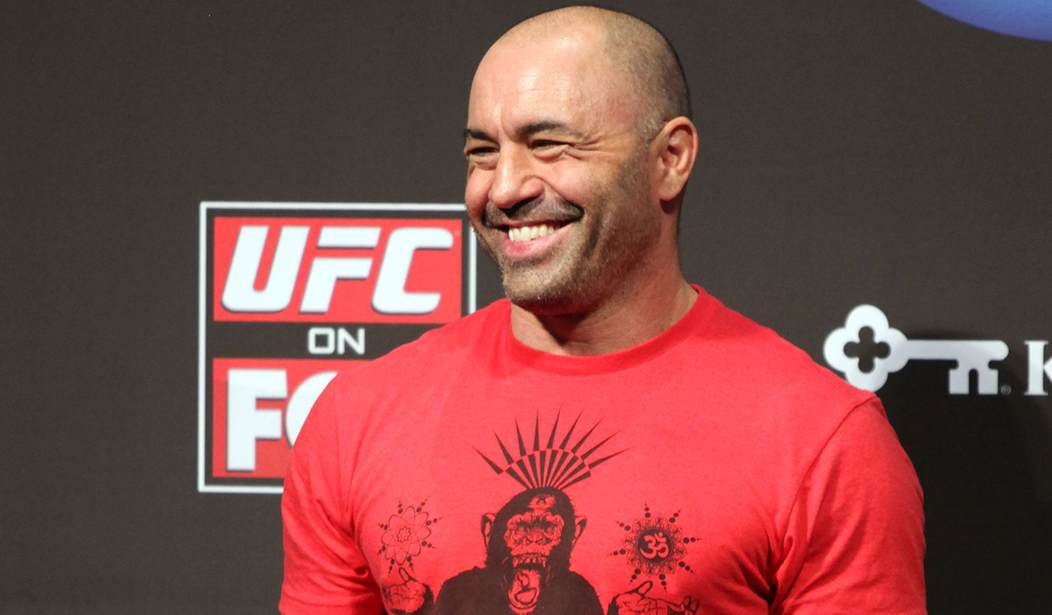Often we look around at the massive institutions and corporations and wonder if there will ever be anything truly new under the sky. For a majority of people’s lives, news alone was almost always limited to maybe a few newspapers and whatever your preference on TV was. The dawn of the internet however created a new land of opportunity for millions, it was an unruly kingdom with no monarch, until one day the people overwhelmingly chose a king - Joe Rogan.
Who crowned Rogan the king of pop culture and podcasts? There were no board meetings, no election, no hard fought competition for the title. It was the hundreds of millions of online consumers who built up the former UFC fighter and Fear Factor host, who went from glitchy online streams with his friends hampered with poor audio, to becoming the most watched online show on the planet to date. From jabbering with comedians to getting to brass-tax with world leaders, from discussing aliens on the moon with Alex Jones to income inequality with Bernie Sanders, Joe Rogan has not only made himself into the embodiment of the 21st century renaissance man, but now he is for many viewers, the new mainstream media.
Think I’m exaggerating? His $100 million exclusive licensing deal with Spotify begs a differ. According to the New York Daily News, Rogan’s deal with the major music and podcast platform Spotify states that “Under the terms of the deal, the show will launch on a nonexclusive basis- including all episodes dating back to 2009 - before becoming exclusive to the platform later in 2020 under the multiyear licensing deal.”
To put things in perspective, former media darling Megyn Kelly made around $69 million a year at NBC, and Fox News headliner Sean Hannity earns an estimated $36 million per year from his show alone.
Recommended
Yahoo! Sports noted in a recent report that “Rogan has often made a big deal of maintaining the independence of his podcast. As he noted in announcing the deal with Spotify, that seemed to be a key component for him. Rogan will be allowed to operate his podcast as he always has, maintaining full editorial control over the content.” This means Rogan gets what Rogan wants, to “discuss and debate” with the people he chooses and the topics he wants. This means no more halting conversation mid-air to consult with his producer whether or not saying a certain name, talking about a certain topic, or even sharing a few seconds of an online clip will cut off the livestream, demonetize the entire episode, or have the show banned entirely from YouTube.
Now I have addressed the massive, dictatorial elephant in the room, YouTube. Rogan, who can’t be put into either left or right wing political thought groups, has ragged about the perils of online censorship the last several years now. In one interview regarding the shadowbanning of accounts and censorship of certain topics on the world’s largest video platform, Rogan stated “I don’t think that’s smart. I don’t think it’s a healthy way to handle things, I don’t think it’s good for the debate. In fact it strengthens the resolve of the people on the other side… Let other people with opposing points of view put their videos up and let people discuss and debate.” It’s not like Rogan has simply criticised Big Tech companies such as YouTube alone, last year he interviewed Twitter CEO Jack Dorsey over Twitter’s controversial banning of accounts, removing verification checkmarks, and adding to the anti-social media climate that everyday Americans are all too familiar with. The conversation was professional and polite according to many, but for Rogan, lack of a resolve on the Big Tech companies to appear fair continued to trouble him, which is exactly why his arrangement with Spotify is as much of a monetary gain as it is a personal statement on the current state of the once free and fair internet.
Whether you agree he is the “unlikely political influencer” as the New York Times called him, or the face of renegade content creators on the internet, I think his friend Bari Weiss put it perfectly in a recent column; “The timing of Rogan’s rise and the Old Guard’s disintegration is not coincidental. His success was made possible, at least in part, by legacy media’s blind spots.” This trust that his viewers have in him isn’t the typical celebrity worship you might think. In 2019, more than 200,000 people alone signed a Change.org petition to have him moderate the Democrat primary debates because of the overall dissatisfaction among viewers who felt the professional reporters weren’t up to par. This stuff never happens for Anderson Cooper or Diane Sawyer, but it does for Rogan.
From providing people what mainstream outlets won’t to taking away pseudo-editorial control from Big Tech, love him or hate him, it’s Joe Rogan’s world, you’re just living in it.
Gavin Wax is president of the New York Young Republican Club, chair of the Association of Young Republican Clubs, Digital Director for the Young Republican National Federation, an associate fellow at the London Center for Policy Research, and a frequent guest on Fox News.. You can follow him on Twitter at @GavinWax.

























Join the conversation as a VIP Member